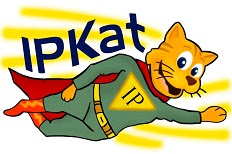As mentioned in this
blog, last Monday part of the IP tango bloggers were working together in a seminar. It was nice indeed to put a face to my cyber colleagues and I was not disappointed (a blind date that did not got wrong!)

The seminar, organized by Aurelio Lopez-Tarruella Martinez and LVCENTIVIS (Alicante University), took place in the beautiful settings of Alicante. The theme was “The protection of Industrial and Intellectual Property Rights in Free Trade Agreements”. The audience was a mixture of practitioners, officers, academics and students.
The seminar was divided in two parts: first Aurelio and myself presented two papers chaired by
Eli Salis:1.- The Processes of economic integration and free trade agreements in Latin America (Aurelio).
2.- Extending the coverage of geographical indications - the EU strategy in the Andean countries (Patricia).
The second part of the seminar was moderated by
Dr Ricardo Antequera-Parilli from the firm Estudio Antequera Parilli & Rodríguez - recognized as the leading IP firm in Venezuela for the second year in a row by Chambers & Partners.
Following the same string, brave students presented seven papers. There were a variety of topics: five papers targeted particular IP issues (mostly patent, copyright and trade mark) in a named Latin America country; two other papers gave us a more general idea of FTA from the European and United States perspective.
I would like to give you a taste of what happen in there.
Clearly putting together three tangoneros (2 presenting and the other one (Gilberto) observing) and an audience full of Latin American and European people and one American, talking about trade, IP negotiations and legislations, dominant positions, politics and even colonization was expected to be a really hot debate. Thankfully, the moderator reminds us that it was not a ‘dialogue’ (the change of ideas was becoming extremely sizzling I have to admit).
What did happen inside the room?
After the delivery of the paper, Aurelio quite politely started the debate by saying that he sensed ‘frustration’ from the speeches. I could not agree more. The situation is very simple: we feel that at the IP -table of negotiations our countries fail(ed) to truly negotiate! We appear to put aside our ‘creation, innovation’ for better quotas in foodstuff– bananas, beef, sugar and so on. Aurelio then suggested that we should be more ‘regionalist’ as the MERCOSUR is doing. I totally disagreed. I believe that what is happening with this Block is not about being regionalist but it is more about bureaucracy and politics. We need a way to promote agriculture, biodiversity, science, and also culture.
Students also participate for both bands (sort of speak). Should we follow the leaning of the BRIC? Are we the same? At the end of the date, yes we are all developing countries, but as one of the students argued, we cannot compare for example Costa Rica with China – so, we are not equal. Another student suggested that we do not negotiate but we do as we are told: “if they ask us to jump, we do it!” uh?Are we puppets?
Ricardo Antequera remarked the fact that Latin American countries IP legislation appear to become more Anglo-Saxon due to bilateral agreements negotiated with the US. Is this good? The situation is that the change of legislation appears to be something that the Latin American countries are doing due to imposition rather that conviction.

To answer the question written in the title I will say that while the dancers were thinking of different moves, yet the dance was a joyful one.
Finally, I would like to finish this report by thanking Aurelio for the opportunity given. I also would like to thanks the students, moderators and the audience for keeping the room really warm in a windy/rainy day.

 The UN Committee that monitors compliance with the International Covenant on Economic, Social and Cultural Rights, warned Colombia about the negative effects that a Free Trade Agreement (FTA) can have.
The UN Committee that monitors compliance with the International Covenant on Economic, Social and Cultural Rights, warned Colombia about the negative effects that a Free Trade Agreement (FTA) can have.

































